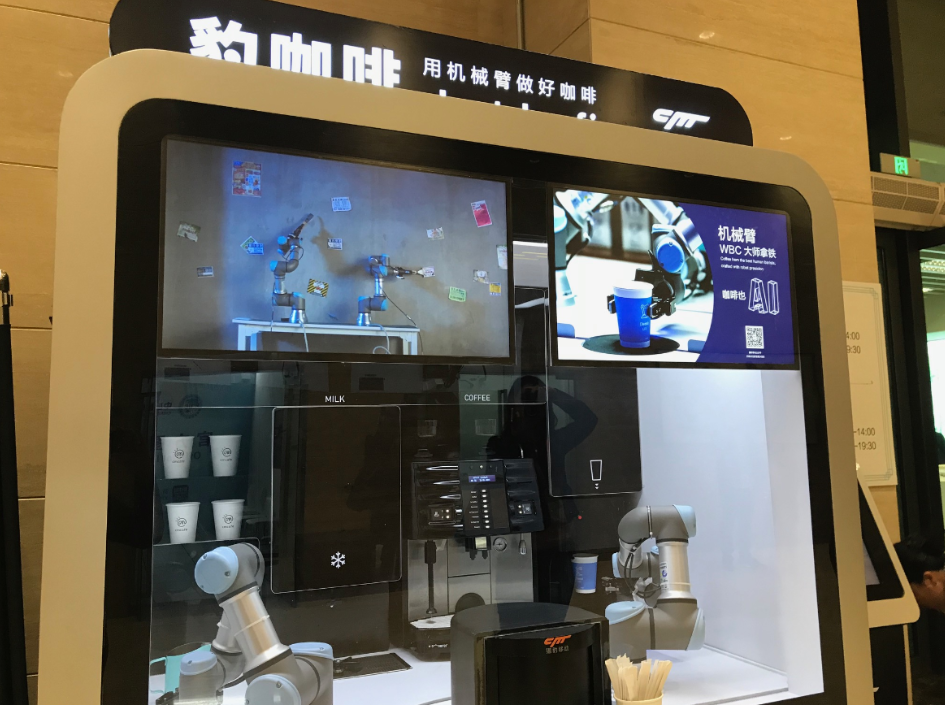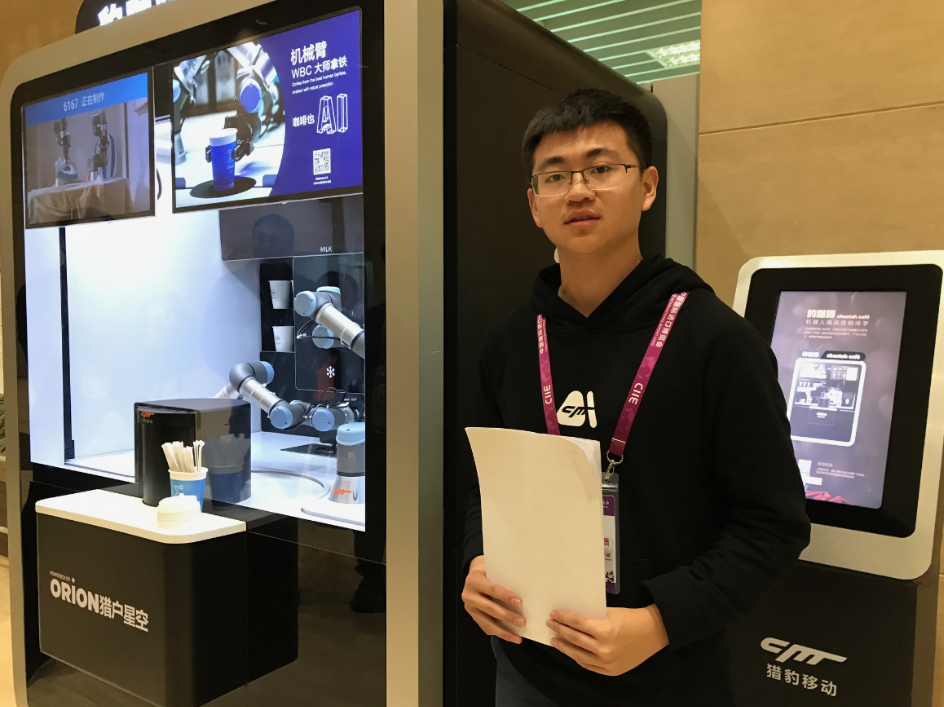CIIE: Automated Services and AI Create New Business Opportunities for Foreign Companies
By staff reporter Verena Menzel

Importing goods from abroad is one thing, bringing them successfully to the end consumer is another and not as easy as it might seem. However, technical innovation and the Internet provide new, surprising ways to cleverly market imported products on the Chinese market.
This seems evident at China's first International Import Expo (CIIE) in Shanghai, whose doors are open to visitors until November 10th.
A freshly brewed cup of coffee prepared by a robot - is that possible? Does it taste good? And to what extent is it a good example of how automated services can become an opportunity for foreign companies? Let’s examine these notions, one by one!
We are located in the Media Center of the National Exhibition Center in Shanghai, where around 4500 journalists from all over the world are reporting on the CIIE. A small crowd of people has formed around what seems at first glance, a rather unimposing vending machine. "Panther Café" (in Chinese 豹咖啡) is written on the pitch-black sign above it. As soon as one approaches, it becomes clear, what the excitement is all about.
Two robotic arms are at work behind the glass pane of the machine. In perfectly coordinated choreography, they brew coffee with the help of a coffee machine, press buttons, foam milk with smooth movements, and finally unerringly grab a paper cup from the stack to artistically pour milk and coffee into it like a well-trained barista. Voila! The whole task is completely without any spills as well.

Chen Shuo
This smart, fully automatic mini café gets by without a barista. Chen Shuo (陈硕), 22, and product manager at OrionStar (猎户星空), the Beijing-based company which designed the fully automated café, explains that all that is needed for the aromatic end product is high-quality ingredients.
To order, one simply has to scan the QR code attached to the machine on one’s smartphone and then select a drink from the digital menu. The nimble robot arms have different coffee variants in their repertoire. After less than two minutes, one holds a cup of freshly brewed coffee in hands.
"Our latte is as good as one made by a professional barista," says Chen Shuo. Ultimately, the two robotic arms delivered even more reliable taste quality than the arms of a human barista, he says, as even after numerous orders, the machine showed no signs of fatigue or lack of concentration.
OrionStar was founded in 2016. So it took the team of around 800 employees only around two years to achieve such high precision in the art of coffee brewing.
"Our company's goal is to bring together technology and product, software, and hardware to design robots that bring real benefits and added value to consumers," says Liang Lan (梁岚), head of the company's PR department.
This new sector of the so-called automated economy (无人经济), for which the “Panther Café” is one example, has been booming in China for several years now. New business models such as shared bikes and shared power banks, self-service supermarkets, and fully automatic mini KTV cabins are now part of everyday life in China.
These automated services owe their success also to the fact that mobile digital payment has already become a common form of payment in China today.
Opportunities for foreign companies
But it is not just domestic companies that are benefiting from this development. The boom in the industry is also creating new, lucrative sales channels for foreign companies and their products. OrionStar, for example, is currently actively looking for foreign coffee bean suppliers as cooperation partners for the Chinese market.
"For us, the CIIE is an excellent platform to present our products, to get in touch with companies from all over the world, and to look for cooperation partners," says Chen.

Coffee producers from abroad are surely pleased to hear this news. As for them, China forms an attractive market with bright future prospects. The image of Chinese slurping exclusively green tea is long outdated.
Everywhere in China, private cafés and branches of large coffee house chains have been springing up like mushrooms for some years now. Coffee is becoming an increasingly important import commodity in China. According to forecasts, the market volume will reach a hundred billion yuan by 2025.
Parallel to this, the demand for well-trained baristas is rising. According to estimates, there is already a shortage of between 60,000 and 70,000 professional baristas throughout China today. So the OrionStar team is successfully ready to tap into a demand that is very likely to continue to even grow bigger in the future.
So far, the "Panther Cafés" can only been found at major events, says Chen. "Our robot coffeeshops are booked, for example, for company events and trade fairs,” he says. In the long run, however, the young company aims to conquer the malls and shopping arcades in the country.
Even after the first few sips, it becomes clear that in terms of taste, the robot coffee can certainly compete with the quality of drinks from many traditional cafés. But what about the price? Isn’t the initial investment for such a high-tech, fully automated café quite high?
"The high-tech equipment comes at a price, of course," Chen admits. Ultimately, however, in the long term, smart cafés are cheaper to maintain than traditional coffee shops, even more so against the background of rising labor costs in China's metropolises, he explains.
And what does the end consumer end up paying for a cup of robot coffee? The company has not yet set a fixed price per cup, says Chen. "However, in our company, a cup of latte from the robot café currently costs 15 yuan,” he says. That's about 1.90 Euro and therefore a quite attractive alternative to the likes of Starbucks and others in terms of price for everyone, not just for trade fair visitors and journalists.